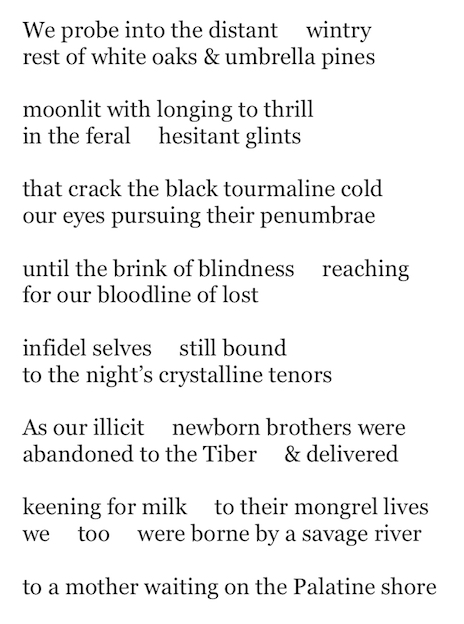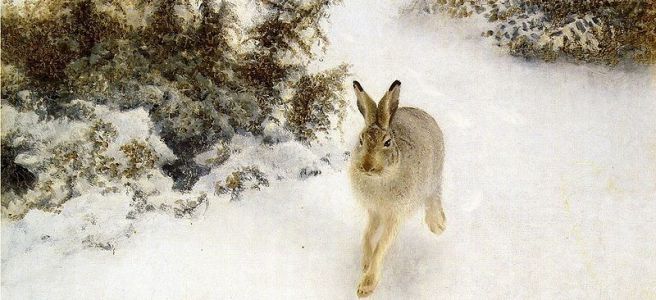
*
You whisper as if smoke
still follows some plane
that left it behind
–mourners understand this
wave goodbye to your words
by leaning closer
the way fires start
though each stone left here
will collide with the sun
–no one would notice
it’s two in the afternoon
and all Earth is warming itself
lighting up the sky
no more than ever
hears you talk louder
say where in your mouth
a kiss can be found
came for you and stayed.
*
How could a moon so dim
see the room being taken away
–the door was closed from behind
as if nothing will return
except to light the stars
with evenings though the bed
stays empty, was uprooted
pulled further from the wall
no mined for its darkness
where each night pours sand
little by little through the blanket
over a room that died.
*
To not hear her leaving
and though this snapshot is wrinkled
it’s carried off in a shirt pocket
that never closes, stays with you
by reaching out as eyes
waiting for tears and emptiness
–you remember who filled the camera
except there was sunlight –a shadow
must say something, must want
to be lifted, brought back, caressed
the way a well is dug for the dead
who want only water and each other
–you try, pull the corners closer
over and over folded till you are facing
the ground, the dry grass, her.
*
To the dirt that no longer moves
you offer a mask the way a flower
over and over is readied for mornings
where time begins again as stars
sensing honey and more darkness
–by evening your death
will be used to footsteps one by one
broken off a great loneliness
returning row by row as the small stones
cut out for the mouth and eyes
to sweeten it, ask
where you are going by yourself.
*
Though there’s no sea nearby
this sidewalk smell from sand
no longer struggling –you point
where the crack will come
when you take your hand away
letting it lie in the street
–what drips from your fingertip
is one wound bathing another
with evenings and shores
covered with the inhuman cries
from small shells still in pain
scattered and not moving
Simon Perchik is an attorney whose poems have appeared in Partisan Review, Forge, Poetry, Osiris, The New Yorker and elsewhere. His most recent collection is The Osiris Poems published by boxofchalk, 2017. For more information including free e-books and his essay “Magic, Illusion and Other Realities” please visit his website at www.simonperchik.com. To view one of his interviews please follow this linkhttps://www.youtube.com/watch?v=MSK774rtfx8
Original photograph by Martin Pettitt.

















